|
It's been a pretty good year. Better than average. My novel found a publisher. A good one. My historian found a job. Also a good one. Which is probably how you know that the Mayans might've been off by a few days, but were otherwise totally right. So before the world ends, I figured I'd better summarize the Year in Reading. 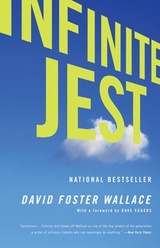 I got a Kindle. I finally read Infinite Jest. These things are not unrelated. I got a frequent buyer card at Harvard Book Store. I vowed never to buy another book from Amazon, cancelled my Rewards Card, and continued to feel mega-guilty about my Kindle. These things are not unrelated. Yet despite all the book buying, it was a fairly frustrating reading year. Where was the transcendence? Where were the books that showed me the world as I believed it but had not yet recognized it to be? Of course it's possible that as my own book gets closer and closer to being born and as I grow tougher and tougher on it, I am also growing tougher on every other narrative I encounter. That would be one vaguely positive, and entirely self-justifying, way to spin it. Regardless, here are my scattered highlights. 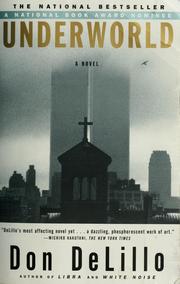 Mountains Conquered Underworld, Don DeLillo Bottom line is I loved Underworld: creation and waste and mushrooms, neighborhood life in 1950s Bronx, J. Edgar Hoover and Lenny Bruce, the trajectory of a single (perhaps apocryphal) baseball. The central character, Nick Shay, is -- honestly, I have no idea what he is or why his emotional flatness should be so interesting to DeLillo -- but it's the vignettes about everything else in the Cold War United States that really keep the novel going, and they are moving and intelligent and gorgeously layered, so really, who cares about Nick...? Infinite Jest, David Foster Wallace Infinite Jest on the other hand? I wrestled with this gorgon for about three months, took lots of breaks, got annoyed at syntax, got angry at mood, and now it's all I can think about. Distracting pharmacological notes aside, I feel I understand a lot more about addiction than I ever did before and I feel grateful for the character of Don Gately. But I also feel that this book never let me get a word in edgewise and for all its effort to make me feel it often just left me cold. I feel it's too much of one thing (despairing, isolating pain) and not enough of all the other things (especially joy in other people) that make up the infinity of human experience. I feel I need to educate myself a lot more to form a considered appreciation of this undeniably major late 20th century American work, cast off all my formal and stylistic prejudices, and etc etc and so on. But I also still feel that I never want to read another suicide by microwave and that everything to do with Quebecois separatist wheelchair assassins is really, really stupid. So maybe I still have some growing to do as I enter 2013? I can only hope. I really do want to grow. 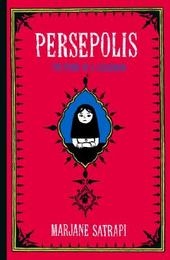 Most Overdue Persepolis, Marjane Satrapi Sometimes there are no words so you have to draw a black box. This graphic memoir of the Iranian Revolution really does live up to the hype.(Also, a great antidote to the America-centric story in Argo.) Most Topical We Need to Talk About Kevin, Lionel Shriver An exceptional novel, culturally daring and intellectually sharp, about the mother of a disturbed adolescent who commits a terrible crime at school. Several months back, I read it as a brilliant allegory for the terror of American parenthood in an individualistic and politically divided society. I still read it that way, though the events described remain far too real and unresolved. Most Original Leaving the Atocha Station, Ben Lerner Perhaps a self-loathing, self-medicating poet's meditation on his alienating year abroad doesn't sound terribly original. Or fun. But Lerner's first novel, about a poet like him named Adam who spends a fellowship year in Spain, is at once clever, curious, hilarious and sad. How can a privileged, accomplished American have anything genuine or valid to say about the terribly ugly real world? Adam starts by taking drugs and going to the Prado. The rest unfolds from there. 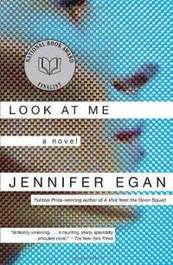 Biggest Treats The Marriage Plot, Jeffrey Eugenides When I read this at the beginning of 2012, I didn't know enough about David Foster Wallace to see any resemblance to Leonard. He was just Leonard to me -- a brilliant, mentally ill guy in love -- which, whatever his source of inspiration, was surely what Eugenides intended. Likewise Madeline was just Madeline and Mitchell just Mitchell: three Ivy League graduates educated in theory on the cusp of becoming real. Look at Me, Jennifer Egan After A Visit from the Goon Squad, I was an Egan convert. Her language, her sharp vantage on American culture, her ability to create a book that encapsulates all that is written and all that is not. I needed more more more. But I'm a savorer, so I only allowed myself one this year. Look at Me was it: about the post-industrial Midwest, and high-fashion Manhattan, and a masochistic model whose face is never quite the same after a devastating car crash. 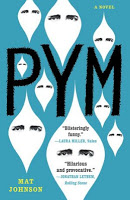 Best Alternate History Pym, Mat Johnson What if Edgar Allen Poe's one novel, The Narrative of Arthur Gordon Pym, were actually inspired by a true story? And what if you were an embittered black academic who was just denied tenure for refusing to teach African-American literature, and what if you discovered a slave narrative linked to Pym that might resurrect your pitiful career? Obviously, you would set sail for whitest Antarctica with an all black crew and hundreds of Little Debbie cakes only to get yourself enslaved by a brutal race of foul-smelling abominable snowmen. "Turns out though that my thorough and exhaustive scholarship into the slave narratives of the African Diaspora in no way prepared me to actually become a fucking slave." Ha! Johnson's novel is high satire -- of the academy, of art, and of course of racial politics, the Atlantic World's enduring irresolvable theme. Article That Spoke Most Directly to My Heart "Some Notes on Attunement," Zadie Smith, The New Yorker, 12/10/12 On Joni Mitchell, emotional evolution, and not being a connoisseur. God, I can't wait to read NW.
0 Comments
Leave a Reply. |
Aboutauthor of The Violet Hour, reader, prodigious eater of ice cream Archives
June 2014
Categories
All
|
 RSS Feed
RSS Feed